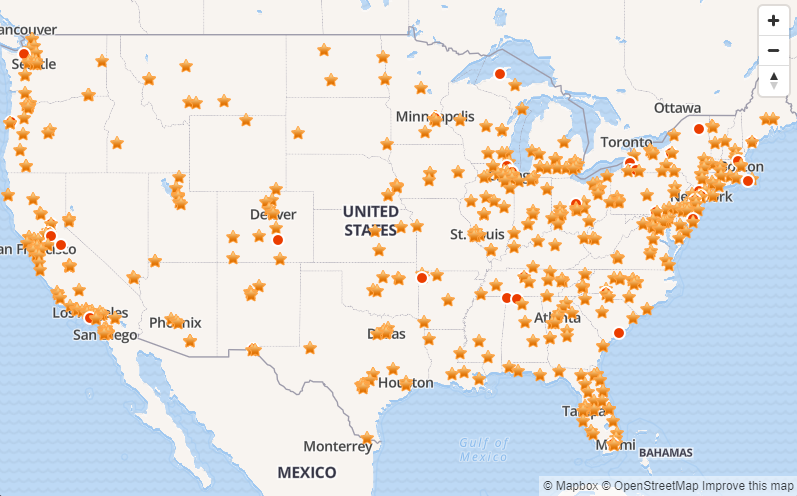Error 404: Net Neutrality Not Found
The two sides of repealing net neutrality
With the impending voting date for the repulsion of the Open Internet Order laws—commonly known as “net neutrality” laws—set in place by Obama-era administration, tensions have been running high on the internet. Popular websites like Reddit contain many posts of people attempting to fight the repulsion of net neutrality laws by the Federal Communications Commision (FCC). Led by chairman Ajit Pai, the FCC has received much backlash over the idea of repealing net neutrality. Though many are fighting against the FCC’s attempt to repeal net neutrality, there are some who want to see it repealed. In order to choose a side, both have to be examined.
With the current laws from net neutrality set in place, all internet service providers (ISPs) are required to give equal speed and access to websites that people search for under their service. ISPs give their consumers choices of packages that provide internet for whatever they need: email, social media, gaming and video.
From the perspective of a consumer on the internet, repealing net neutrality laws seems to be a horrible decision. If these laws are indeed repealed, then ISPs will once again be in control of the internet speeds of a consumer’s’ website and connections. This means that big companies such as Google and Yahoo have the ability to pay off ISPs for high-speed lanes, meaning that the connection to websites owned by these companies will have the fastest connections while smaller companies will be left with slower lanes, meaning slower connection speeds.
In addition to faster and slower speeds, ISPs would be able to charge the consumer to use certain websites. For instance, a consumer has a package that doesn’t allow access to 50 sites, but the consumer wants to access one of them. He/she would then have to pay an extra fee to access that website. This worries many consumers who want free access to the internet.
Many internet consumers are not staying quiet on this issue. There are several websites and petitions set up to protest the repealment of these laws. For instance, a petition on Change.org has over 1 million signatures. When the petition reaches 1 million votes, the petition will be sent to the FCC, U.S. House of Representatives and U.S. Senate. Another petition was created on the White House petition page. The petition currently has more than 249,000 signatures, which surpasses the 100,000 needed to get a response from the White House. These numbers just go to show how many people care about net neutrality and equal internet.
“I’m here thinking that the world is moving even further into the future where it connects everything and everyone together to an incomprehensible level. But with the FCC trying to take down net neutrality, it genuinely feels like we’re going back in time,” Redditor xbaidi said in a post on the Reddit thread r/netneutrality.
On the other hand, if the repeal of the Open Internet Order laws does indeed go through, then many consumers would benefit from this. The internet would go back to the same regulations that it was run by before 2015, when the FCC originally passed the net neutrality laws. Many people only choose to research their side, thus many do not even know the benefits of repealing net neutrality. As a result, many people are unaware of what they could gain.
To start, consumers would be able to save money in a variety of ways. Currently, all internet is sold in a single package. A change from single package pricing would allow consumers to choose a package that would work for them; if they don’t want to pay for access to gaming services, they can cut that out of their package and save money. It’s more efficient for the consumer to get rid of the services they don’t use so they can save money for other uses.
Additionally, competition caused by the repealment would lower the prices of packages. More companies will be able to compete in a market that is not micromanaged by the government, thus larger companies will have to lower their prices in order to stay on top of their market. Smaller companies don’t have the opportunity to compete now because of the heavy fees they have to pay from the net neutrality laws. With the repulsion of these laws, these small companies will be able to compete once more because they don’t have to pay for these fees. Much of the public is ignorant to this side of the facts, as they only know what they have seen to support their side.
“The FCC would simply require Internet service providers to be transparent about their practices so that consumers can buy the service plan that’s best for them and entrepreneurs and other small businesses can have the technical information they need to innovate,” FCC chairperson Pai stated.
To sum it up, the fight for net neutrality has been vastly blown out of proportion. When it comes down to the truth, both cases can be equally argued by consumers. However, people arguing for net neutrality to remain have taken up most of the argument, leaving those in favor of the repeal to be vastly outnumbered. Though not completely silenced, their voice still exists, it just has to be found. As mentioned, the decision is to happen on Dec. 14 and is currently expected to be repealed. With strong opinions comes strong arguments, and this is no exception. Consumers have made their voice loud and clear in the fight for net neutrality.



